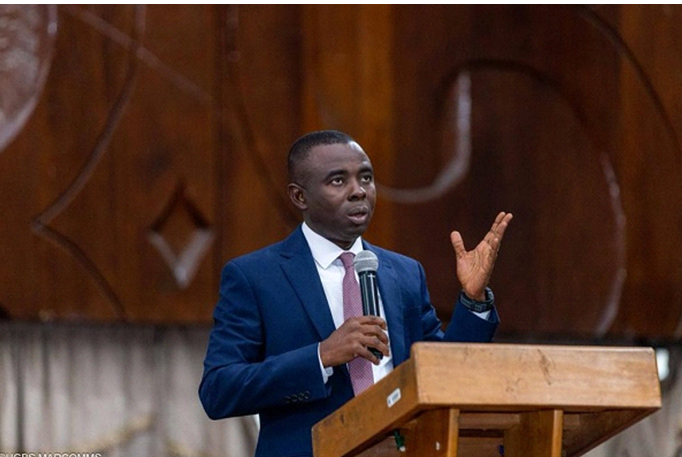By Joshua Worlasi AMLANU
Professor Joshua Yindenaba Abor has called for sweeping reforms in development finance to promote inclusive green growth and financial stability.
The professor’s address during an inaugural lecture at the Ghana Academy of Arts and Sciences (GAAS), titled ‘Rethinking Development Finance for Inclusive Green Finance Stability Implications’, highlighted the critical role of carbon taxes and efficient resource management in driving sustainable development.
Prof. Abor emphasised the urgent need for Ghana and African governments alike to strengthen their fiscal positions through enhanced domestic resource mobilisation.
“Governments need to improve their fiscal position to finance increased public investment in climate-related areas without impeding government work, which tends to crowd out the private sector,” he stated. “This will require increasing tax revenue through the imposition of appropriate carbon taxes.”
The proposed carbon tax is seen as a crucial tool to generate funds necessary for climate action while simultaneously discouraging carbon-intensive activities. By putting a price on carbon emissions, governments can create economic incentives for businesses and individuals to reduce their carbon footprint and invest in cleaner technologies.
Carbon tax has gained prominence on the global stage as a means to address environmental challenges while simultaneously contributing to broader sustainability objectives, such as the United Nations Sustainable Development Goals (SDGs). This policy tool is designed to mitigate the impact of carbon emissions on climate change and promote the transition to a low-carbon economy.
A carbon tax could discourage the use of fossil fuels and encourage a shift to less-polluting fuels, thereby limiting carbon dioxide (CO2) emissions that are by far the most prevalent greenhouse gas.
Ghana’s Parliament enacted the Emissions Levy Act, 2023, Act 1112 (Levy). The Act was passed with respect to the tax measures introduced by government in the 2024 Budget Statement and Economic Policy (the 2024 Budget). It aims at raising revenue to support various sector reforms as well as promote the green economy.
Prof. Abor stressed the importance of efficient natural resource management, particularly in developing countries.
“Non-renewable natural resources are wasting assets with finite lifespans,” he warned. “Therefore, revenue generated from their exploitation must be invested to drive inclusive growth and sustainable development.”
The lecture highlighted a disconnect between the extractive sector and broader economy in many resource-rich nations. “The extractive sector is not properly integrated with the rest of the economy,” Prof. Abor observed. “We benefit from such sectors through export revenue. If the export revenue does not come to support the financial market, then we are not really benefitting from it.”
To address this issue, the professor called for a reassessment of investment and stability agreements surrounding natural resources. He urged African that countries must review these agreements to ensure they promote financial development and inclusiveness.
The role of Development Finance Institutions (DFIs) was another key focus of the lecture. Prof. Abor emphasised their potential to catalyse private investment in climate action and sustainable development. “DFIs are being recognised as pivotal in playing a critical role for climate action investment necessary to build a sustainable economy,” he stated.
Prof. Abor also highlighted the importance of exploring voluntary and compliant carbon markets. “Carbon markets provide carbon finance, which includes financial tools such as carbon emission trading to minimise the impact of greenhouse gases,” he explained. These markets can generate substantial debt-free finance for priorities such as forest restoration and accelerated phase-out of coal.
The lecture touched on a need to reform the global financial architecture, particularly in relation to Special Drawing Rights (SDRs). Prof. Abor suggested that “IMF programmes need to be looked at, and there is clearly a need for appropriate and fair allocation of special drawing rights”.
Central banks and financial regulators were not exempt from Prof. Abor’s recommendations. He called for the incorporation of climate-related risks in stress-testing scenarios – and urged financial institutions to effectively identify climate risks on their balance sheets and loan portfolios.
“Central banks can promote green finance, green banking and reduce unsustainable economic activity,” Prof. Abor stated. “Their decision-making needs should be in line with net-zero central banking in the areas of monetary policy, regulation, disposition and portfolio management functions.”
Prof. Abor emphasised the interconnectedness of inclusive green finance and financial stability. He called for a concerted effort from governments, DFIs, central banks and the private sector to address climate change and promote sustainable development.










